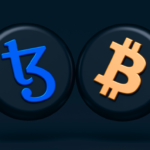Businesses are increasingly facing complex and difficult challenges in today’s fast-paced and ever-evolving business environment. Challenges range from global competition to rising customer expectations, as well as maintaining profitability in the face of limited resources. Decentralized Autonomous Organizations (DAOs) can provide a powerful solution to these challenges by allowing businesses to become more efficient, automated, distributed, and collaborative.

What Are DAOs?
DAOs are autonomous self-organizing networks of nodes that operate on a blockchain platform. They allow for a new level of automated governance and collaboration between users without the need for centralized oversight. DAOs are self-sustaining, meaning they can exist autonomously without external interference or control.
Smart contracts are computer protocols that automatically execute contractual terms and conditions. They form the core of DAO operations. They enhance secure and transparent transactions between parties while minimizing costs and eliminating the need for third-party intermediaries.
Another feature to note is that DAOs are self-funded. A token system helps generate funds by incentivizing user participation. Through this system, users can buy and sell tokens, representing a stake in the DAO’s success. That creates a closed-loop system where users can earn money and purchase tokens to increase their stake in the DAO.
How Do DAOs Work?

You have already noted that blockchain networks back the implementation of DAO. If you were wondering what is a DAO, now you understand that it is a system that employs smart contracts to deploy governance and collaboration models. These decentralized autonomous organizations can achieve specific objectives through the execution of certain tasks.
At its most basic level, a DAO works by users assigning roles and tasks to the organization’s smart contracts. These tasks can vary from anything as simple as transferring funds to more complex objectives, such as executing automated trading strategies or working with external data sources. For these tasks to run, users need to stake tokens in the DAO, which will become part of the DAO’s collective resources.
A DAO’s decision-making process is decentralized in nature. Users can propose ideas, vote on them, or even create new smart contracts within the DAO. For instance, in a DAO running a blockchain-based game, users can vote on new features and content that the game should include.
As a stakeholder, one can also benefit from the DAO’s success. Depending on the token system, users may receive a dividend or other rewards if the DAO is successful. It is an added incentive to keep users engaged and invested in the DAO’s success.
Benefits of DAO Implementation
So, why would you be interested in DAO? Can it help businesses in today’s fast-paced environment? The answer is yes. DAOs offer a range of benefits to businesses, from cost savings to improved collaboration and transparency.
Reduced Operational Costs

DAOs offer businesses faster decision-making times by eliminating third-party intermediaries. It reduces operational costs since you no longer need to pay for legal, transactional, and other third-party expenses. That, in turn, enables businesses to become more agile and cost-efficient while maintaining high security and transparency.
Improved Efficiency
One significant feature of DAOs isautomation.Smart contracts enable faster task completion, project management, and monitoring, unlike manual or centralized processes. That makes operations more efficient and streamlined, eliminating the potential for human error.
Also, using blockchain-based smart contracts, DAOs can quickly identify and resolve problems autonomously. That saves businesses time and money since they do not rely on manual processes and costly intermediaries.
Increased Collaboration and Transparency
By using a token system, DAOs can create an incentive system that encourages users to collaborate and engage with the organization. That, in turn, creates an environment where information is openly shared among users, creating a sense of transparency and trust.
Increased Security
Blockchain networks provide a secure and transparent way to transfer data and assets. That ensures that stakeholders can trust in the integrity of their data and assets since malicious actors cannot modify or delete the data without the approval of the network.
When You Can Apply DAO

Are you launching a new business and wondering whether DAO can help you? The answer is that it depends on many factors, such as the project’s size, complexity, and goals. Nevertheless, DAO is ideal for businesses with a global reach. That prioritizes open and transparent collaboration.
For instance, if you want to launch a decentralized application (DApp) or a blockchain-based game, a DAO can provide the necessary infrastructure and incentive system to maintain the user base. Profitability depends on user engagement, so creating a DAO can be a great way to keep users interested in your project.
Moreover, it can help if you want to launch a more complex project, such as a blockchain-based supply chain or identity management system. DAO can provide the necessary tools to manage the project efficiently and securely.
Conclusion
Decentralized autonomous organizations are a revolutionary way of decentralizing decision-making and operations. Through blockchain-based smart contracts and a token system, DAOs offer businesses improved efficiency, collaboration, and transparency. Security, reduced costs, and automated processes are other fundamental benefits of DAO implementation. You can apply a DAO depending on your project size, complexity, and goals. In short, DAO can help businesses become more agile, cost-effective, and secure.
Join 25,000+ smart readers—don’t miss out!







